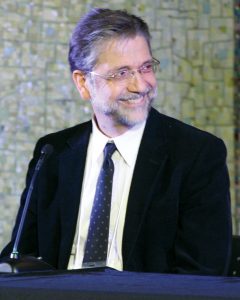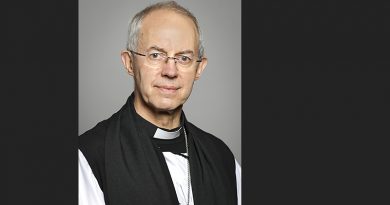Leading International lawyers critique a Chancellor’s influential Memo
By Sue Careless
FOR SOME TIME now several diocesan bishops within the Anglican Church of Canada have been allowing – and even sometimes personally performing – same-sex marriages and have authorized liturgies for such rites. They have based their right to do so on a Memo issued in June 2016 by Chancellor David Jones Q.C., the top legal advisor to the Primate.
Now a top canon lawyer in the global Anglican Communion has filed a 10-page Legal Opinion that argues that the Chancellor’s Memo is “inaccurate and misleading” and makes “disingenuous assertions.”
But the new report goes much further, stating that disciplinary charges under Canon XVIII currently could be brought against any cleric who solemnizes a same-sex marriage or any person who purports to authorize a liturgy for such a rite.
Late last summer the Anglican Communion Alliance (ACA), a theologically orthodox group within the ACoC, sought the legal opinion of two leading international authorities of Canon law, Professor Mark Hill, QC and Professor Norman Doe, on the validity of the Chancellor’s Memo. They did so not knowing what the outcome would be.
The primary author of the report is Prof. Mark Hill, who is the leading canon law practitioner in the Church of England. ACA’s Cover Letter notes that Prof. Hill is “by no means a radical conservative; he wrote a piece in 2009 that was generally supportive of civil partnerships for same-sex couples.” Prof. Hill’s Opinion is fully supported by Prof. Norman Doe who teaches canon law at the University of Cardiff, and who is a key consultant on matters of canon law throughout the Anglican Communion.
Chancellor Jones in his Memo had argued that the Marriage Canon does not actually prohibit same-sex marriage, and so it is therefore permissible (the so-called ‘argument from silence’). Jones also claimed that the Marriage Canon does not contain a definition of marriage. And finally, that because there was a gap between church law and pastoral care, diocesan bishops may authorize same-sex liturgies.
Hill disagrees: “No Provincial Synod or diocesan bishop has the power to authorize a liturgy for the solemnisation of a same-sex marriage unless and until the Church changes its doctrine through proper process as prescribed in its governing instruments.”
As the Hill/Doe Opinion reiterates, the current doctrine of the ACoC unambiguously defines marriage as a union between a man and a woman. An attempt was made at the last General Synod in 2019 to remove gender-specific language from the Marriage Canon but Resolution A052-R2 failed by a slim margin.
Hill is skeptical as to whether the Resolution, even if it had passed, would have actually had the intended effect:
“There is doubt as to whether the Resolution would have been sufficient to effect the intended change: it would not have made any amendment to the Solemn Declaration or the rubrics of the Book of Common Prayer (1962). Had the Resolution been passed, there would have been mutually contradictory material within the governing instruments of the Anglican Church of Canada, some supportive of same-sex marriage and some not. This would have been highly unsatisfactory.”
Each Church within the Anglican Communion is autonomous and self-governing so the Legal Opinion offered by Hill and endorsed by Doe is not binding as such but would seem to warrant careful consideration by the Primate, Linda Nicholls, her five archbishops and indeed the full House of Bishops.
The cover letter that accompanies the Opinion also raises governance issues that are on the horizon, and says “We need to state…firmly and clearly, that in offering this Opinion to the Church, it is not our intention to re-open a debate about changes to Canon XXI. Our entire intention in offering this Opinion to you is to help the Church go forward as properly ordered and to give Anglicans confidence that this ordering is being followed.”
The ACA received Hill’s Opinion on Oct. 1 but did not share it with the Primate and the five archbishops until Dec. 22 when they met by Zoom. The whole House of Bishops received the document on Epiphany, Jan. 6, along with a cover letter from Dr. David Smith, the Chair of ACA, and it was made public on Jan. 12, 2021.
In his cover letter, Dr. Smith wrote that “Prof. Hill’s and Prof. Doe’s assessment is that Chancellor Jones’ Memo (2016) is seriously flawed and makes disingenuous assertions. We believe the Church has not been well served by it.”
He continued: “The Hill/Doe Opinion is deeply unsettling, and the Board members have spent some time praying about how to offer this in a way which is constructive and life-giving to the Church. We hope for a new awareness among the Canadian bishops and other leaders about the process for doctrinal developments in the future and the process for changes to the Church’s constitution.
“While we recognize that this Opinion will inevitably be upsetting for some, we do not want to shame or embarrass anyone, nor do we harbour personal animosities. We want to help the Church move forward on a solid footing, respecting its Canons and Constitution.
One practical suggestion Dr. Smith made was that the ACoC “consider creating a Task Force on Communion Across Difference, similar to the one that now exists in The Episcopal Church. This Task Force would be comprised of equal numbers of members representing both sides of the debate around marriage.”
Dr Smith concluded: “We are investing a great deal of trust in you to shepherd the process well. We would be deeply disappointed if the Opinion were simply buried or if the ACA and other leaders were mischaracterized or demonized.”
When asked why they waited almost three months before sharing Hill’s Legal Opinion with the Primate and other leaders of the ACoC, the National Director of ACA, Sharon Dewey Hetke, replied:
“We wanted to take time to consider prayerfully how this might be shared in a constructive way, as our whole intention is for the strengthening of the Church as we move forward. Once we decided on a process, we wanted to also build in time for the leaders of our Church to consider it, and to engage with us if they wished.”
Primate Linda Nicholls has declined to comment on the Legal Opinion. Joseph Vecsi, the Director of Communications for the ACoC, sent an email Jan. 13 saying “we will not be providing any comment on this matter.”
The full Hill/Doe Legal Opinion, along with the covering letter from the ACA, can be read at https://anglicancommunionalliance.ca/legal-opinion-on-canons-and-procedure-in-the-anglican-church-of-canada/. TAP
Dr. Ephraim Radner’s response to the Hill/Doe Opinion
First, I need to say that I find the opinion convincing. I am not a canon lawyer, but I have some experience with canons and their place within the church’s larger life and with their theological-pastoral functioning. The opinion’s reasoning is consistent with not only common sense readings of the Canadian canons and constitution, but with the general way authority has functioned within Anglicanism historically and more broadly. I am, in other words, not surprised at the opinion; it strikes me as just right.

Second, it would appear from the opinion — and I am not surprised by this conclusion — that the traditional definition of marriage is simply embedded within the Anglican Church of Canada’s very ordering — Scripture, BCP, Solemn Declaration, Constitution, and so on. It isn’t really possible to change this definition, without inventing a “new church”. I have long argued this. And the conclusion from this is that those who want to formalize same-sex marriage ought logically — canonically! — simply to form another church that can do that. The ACC cannot.
Third, while this may be “logical”, it isn’t going to happen in the foreseeable future. The canons only have “force” when they are applied by those with the power to implement them in a disciplinary manner. This has always been the case. If enough people want to ignore canons or apply them illogically, they can do so without formal repercussions. That is where we are today on the matter of marriage. And thus, I don’t actually think that the opinion will alter much in terms of positive practice.
Fourth, and that being said, there is formative and long-term value to stating the truth about something — in this case the canonical, and more broadly, the theological-moral standards of the Anglican Church of Canada (whether they are applied or not). The opinion at least defines the space that traditionalists on marriage in the ACC hold: that is, the traditional view of marriage between a man and a woman is and remains (and will, as I indicated, always remain) the “official” teaching of the Church, in legal terms. Conversely, the opinion defines the place held by those who sanction same-sex marriage: they are in an “unofficial” and “non-canonical” space, one that has no legal standing in the Anglican church. This can now be taught, explained, and lived out without apology with respect to logic and law — something that will have an effect upon those who think about such things.
But exactly what effect? It’s hard to say now. But I would think in the end it will have a good effect: it will (slowly, probably) bring back into view questions of ecclesial lawfulness and lawlessness, and their Christian significance, questions that we need desperately to address within the church and larger society, and that many people are in fact interested in, whatever their position on marriage; it will provide fairly straight forward grounds for traditional clergy and congregations to pursue their teaching in a way that is (more) free from the arbitrary determinations and impositions of local adjudicatories; it will thereby (perhaps) provide space for the compelling character of Christian marriage, traditionally understood, to reassert itself in our midst, as I think it will.
Finally, all of the above does not constitute some radical turning back of the clock of ecclesial experience on the matter of marriage, and indeed assumes that the present and near future at least will continue to be confused and will mark a landscape of canonical and uncanonical actions unparsed by any clear discipline. Nonetheless, the opinion reminds us that the ensign of (what I would view as) truthful teaching about marriage remains fastened in the ground in the midst of our contested encounters. Christians have long lived within such contestation — on matters of euthanasia, abortion, war, and other matters — one in which deep truths are at stake, even as we allow room for their questioning and repudiation by others in some (we hope) provisional way. How one does this is a matter of prudence and is tied to a certain hopefulness and patience, a combination that sometimes totters. But acknowledging that this is where we are placed, both within our churches and in our larger society, is not thereby an act of “concession”; it is rather bound up with the grace of perseverance. TAP
Dr. Ephraim Radner is a priest in the Episcopal Church and professor of historical theology at Wycliffe College, an Anglican seminary affiliated with the University of Toronto. He has taught there since 2007. Before then, he worked and pastored in various parts of the Anglican Communion. His doctorate from Yale University is in theology.




